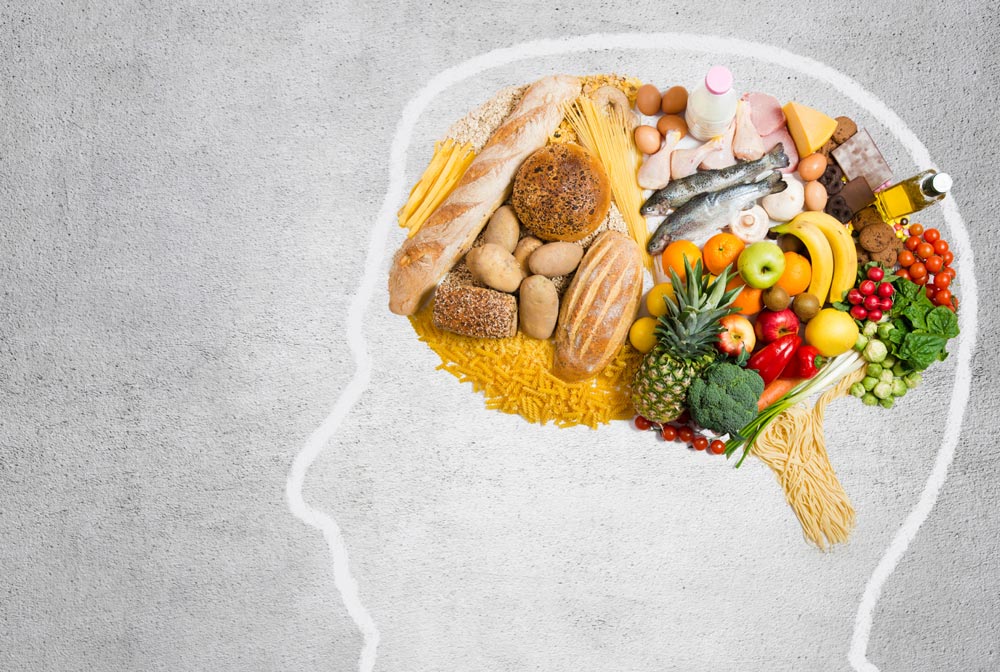Fostering Positive Body Image in Weight Management: Insights from a Registered Dietitian

Positive Body Image In a world bombarded with conflicting messages about weight and body image, it is crucial to seek guidance from experts who can provide evidence-based perspectives to give you a Positive Body Image. As a registered dietitian, I have immersed myself in the world of weight management and body image over the past 26 yrs, blending scientific knowledge with a compassionate approach. In this blog, I will be exploring a few different areas of balanced nutrition, mindful practices and enabling self-acceptance. With my expertise in this area, I hope to encourage individuals to believe they can too reach these goals. The Balancing Act of Weight Management: Weight management is a delicate balance between nurturing our bodies and maintaining a healthy weight. Instead of succumbing to fad diets or quick fixes, the focus I believe is on sustainable lifestyle changes that support overall well-being. As a registered dietitian, and a Hashimoto’s sufferer myself (Gillians Story) I promote a comprehensive approach that encompasses fixing the gut, checking bloods, balancing nutrition, portion control, regular physical activity, mindful eating and much more. By embracing this full-body holistic perspective, we can release the handbrakes and build a healthy relationship with food and establish habits that nourish both our bodies and minds. I firmly believe in focusing on internal well-being from the outset and the rest will fall into place. A great analogy: Just as you don’t fix the exhaust when you see blue smoke, but rather fix the engine, the same is true for our bodies. The first step… Is by making contact and believing you are good enough to make the changes with professional help. Nurturing Positive Body Image: Positive body image is not solely defined by societal standards, but rather by our perception of ourselves and how we feel in our own skin. I’m familiar with society’s unrealistic standards of beauty, and the negative effects this has on people. In the 80s, when I was growing up magazines featured skeletal models, sharing harmful advice and contributing to a culture of self-loathing. We’ve been exposed to this kind of advertising while shopping, socialising and browsing online. It has been actively encouraged and continues to be an integral part of the digital experience. By self-compassion, and surrounding ourselves with positive influences, we can begin to redefine body image on our own terms. This journey towards positive body image is not straightforward or easy, but it starts with us all, men and women, acknowledging our worth beyond physical appearance and embracing our unique qualities. I have had the privilege of helping and watching thousands of people move from being stuck fearful, depressed and alone to taking control, finding their inner harmony and sparkle with life again as they emerge from feeling trapped. It is honestly the best feeling ever. Empowering a Positive Body Image through Education: Education plays a pivotal role in transforming our understanding of weight management and body image. With over 25yrs of sifting right from wrong, my role has never been more important as I provide my patients with personalised, accurate, and reliable information about nutrition, debunking myths and misconceptions that often fuel unhealthy behaviours. Understanding the science behind weight management allows for informed choices, and healthier eating patterns, and allows for realistic goals that work with our individual needs and preferences. Education equips us with the tools necessary to navigate the complex landscape of weight management and body image with confidence. Cultivating a Supportive Environment: Creating a supportive environment is vital in the journey towards positive body image and sustainable weight management. Toxic people and toxic messages are hugely influential on all ages, social media driving this every minute of every day. Definitely surrounding ourselves with people who inspire and support us can build resilience and reinforce the importance of self-care. By seeking professional guidance from registered dietitians and engaging in support networks, you can navigate challenges, celebrate achievements, and share experiences in a safe and understanding space. Conclusion: Weight management and body image are multifaceted topics that require a nuanced approach. With my experience and qualifications as a registered dietitian, I know what works. A balance of a healthy gut, optimal nutrition, being active, mindful practices, and self-acceptance is the first level, If required blood testing and genetics (nutrigenomics) may be required to work a little more under the bonnet! Remember, you are not alone in this process. Seek the guidance of registered dietitians and surround yourself with a community that values your well-being beyond societal expectations. Together, we can unlock the handbrakes to assist any concerns you have with your weight and build a strong and positive body for a happier, healthier future. So, what to do next or anything else.. If you are needing help with your weight and body image worried you have a poor diet or ongoing stress and wish to change your eating habits or need help optimising the foods you eat and are not sure what programme to select, please do contact us. We would love to help you or your family and friends with any nutrition-related queries big or small. If you want to book your programme TODAY we would love to help you. You can book a 121 Dietitian Programme today by clicking on the link below If you have enjoyed this blog we would love you to share this with your family and friends on your social media channels. Do visit our YouTube Channel for more on keeping your health optimal. If you are interested in how I overcame my Thyroid Autoimmune Condition do check out the About section below Before you go please check out our 121 Dietitian Shop created specifically for optimising your health. Gillian x
Mindful Eating – Do you??

Mindful eating has become a well-used term over recent years. But do you really know what this entails? Gillian Killiner Specialist Dietitian explores this topic further, so you don’t have to. Did you know this concept of mindful eating has roots in Buddhist teachings? Mindful eating is not a diet, or about giving up anything at all. It’s about experiencing the pleasure of food giving more thought to what’s on your plate each time you sit down to eat. Yes…. Sitting down, an act often forgotten in this busy world we live in. Or did live in before COVID-19. Interestingly with this current pause, many parts of life have changed and so with this in mind it may be a good time to embrace the act of mindful eating as many of use are working from home and still eating mindlessly. So what do you need to do for mindful eating? We need to really assess first and foremost how we conduct our day and the priority we give to the act of eating. Do any of the following resonate with you? Are you each day: • Racing out the door first thing with a coffee when not in lockdown? • Running around the kitchen taking bites as you feed the children? • Are you someone who sits in a van, lorry or car all day and eats food from the passenger seat as you go? • Maybe you sit at your desk all day not having a lunch break but eat as you work. • Do you eat fast just so you can get onto the next part of your day? Interestingly if you are eating while under stress or distracted by something else, your body doesn’t know that it’s supposed to be digesting. Stress stimulates the parasympathetic nervous system. As you dash out the door in the morning, coffee in hand, or eat lunch in front of a computer screen or in the car the message you are giving your body is “don’t digest.” If you continually do this you will struggle to absorb your nutrients fully and possibly also suffer from mechanical issues like burping, bloating and reflux. This knock-on effect can also lead to weight gain as you are not registering the foods you are consuming and likely overeating. To become mindful is to retrain the way you think about food. How to retrain yourself for mindful eating habits Developing a Mindful Eating Practice 1) Sit down to eat and drink in a comfortable environment 2) Ensure you are in a relaxed state 3) Prepare your food from good quality ingredients ( not a problem if it has been made the night before). It is important to use fresh wholesome ingredients to nourish the body. 4) Before eating take a look at the food – check it for colour, freshness, smell, crunch, zing, creaminess, saltiness, sweetness etc rate the food. 5) Chew slowly and acknowledge that you are eating a bite at a time and tasting eat bite. 6) If you are eating a wholesome diet this should not be an issue. I find many of my clients that come to me have not engaged in mindful eating before. When they do, they really are surprised at how their eating habits positively improve. What next for your mindful eating? If you are unsure of how to change your eating habits, or need help optimising the foods you eat please do contact us. We would love to help you or your family and friends with any nutrition related queries big or small. In the meantime do please check out our 121Dietitian Shop If you have enjoyed this blog we would love you to share this with your family and friends on your social media channels. Why not visit our YouTube Channel for more on keeping your health optimal. How can a Dietitian help Book a consultation via our Online Portal About Gillian Killiner Check out our tailored dietary programmes Gillian x [instagram-feed]